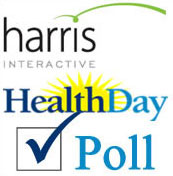
WEDNESDAY, Nov. 13 (HealthDay News) — Many Americans say they’d submit to insurance company medical tests and lifestyle monitoring in exchange for lower-cost premiums, a new Harris Interactive/HealthDay poll finds.
The poll of more than 2,000 adults found that a majority would be “very willing” to have various tests and share the results with their health insurer — provided there was a financial incentive, such as a lower monthly premium or smaller co-pays.
Many were even open to intrusive measures. Just over half said they’d agree to let their health plan monitor any exercise regimen they were using to lose excess pounds or control diabetes.
What’s more, nearly half said they’d undergo genetic tests to gauge their risks of “cancer or inherited medical conditions.”
“That’s kind of shocking,” said Jennifer Blumenthal-Barby, an assistant professor of medicine and medical ethics at Baylor College of Medicine in Houston.
There is nothing “inherently wrong” with offering people financial incentives aimed at improving their health and reining in health care costs, Blumenthal-Barby said. But divulging your risk of potentially developing a disease at some point in the future is another matter.
“You have to wonder to what extent people understand the implications of that,” Blumenthal-Barby said. Privacy has been a long-time concern with genetic testing, because employers or insurers could potentially discriminate against people at increased risk of a given disease.
Of course, survey respondents’ answers to theoretical questions need to be taken with a grain of salt. In real life, people might not be so quick to have genetic testing, Blumenthal-Barby added.
But, she said, the poll results raise concerns about how informed people are when it comes to genetic testing and privacy.
In recent years, many U.S. companies that provide health insurance to their employees have started offering financial incentives. Workers who undergo blood pressure, cholesterol or blood sugar tests, or who join an exercise or disease-management program, can get a break on what they pay into their insurance. Some employers also base the financial reward on the results of those tests.
In the new survey, most people were open to those simpler types of tests: Three-quarters said they’d have a blood pressure check, while 68 percent were willing to undergo blood sugar or cholesterol tests.
But fewer were willing to have their lifestyle choices scrutinized for a financial reward.
Just over half said they’d take part in a health plan-monitored exercise regimen to lose weight or control diabetes. And only about 38 percent would follow a specific diet to help lower their blood pressure or cholesterol.
“This survey shows that there is a substantial opportunity for health plans to test and monitor the health status and health risk behaviors of health plan members, but that they would have to be extremely careful to avoid a potentially explosive backlash,” said Harris Poll Chairman Humphrey Taylor.
Blumenthal-Barby agreed on the need for a cautious deployment of financial incentives. “We need to make sure that incentives do not become coercive,” she said.
Taylor pointed out that “all such monitoring and testing would have to be, and be seen to be, strictly voluntary. Any suggestion that pressure was being put on people to participate would be disastrous.”
According to Blumenthal-Barby, one of the striking findings from the poll was that while 49 percent of people were “very willing” to undergo genetic tests, only 28 percent would attend a health class or keep an online diet-and-exercise diary.
“People would rather have genetic tests than keep a diary,” she said.
That could be because a blood test sounds much easier, or because people often believe they are unlikely to have any “bad” genes, Blumenthal-Barby noted. But again, she said, the results suggest that many people do not grasp the full implications of giving away genetic information.
The poll, which surveyed 2,033 Americans online between Oct. 21-23, asked about hypothetical situations — what people “would” do if a health plan were to offer incentives for various tests.
Blumenthal-Barby said she wasn’t aware of any employers or insurers currently offering incentives in exchange for genetic tests — which, in addition to being intrusive, are costly.
But she said that when people do get real offers of financial reward in exchange for medical tests, they should make sure they understand the deal.
“I don’t think incentives are ‘bad,'” Blumenthal-Barby said. “If the aim is to help you be healthier and cut down on overall health care costs, they could be good.”
But, she added, “people may just think about the money. They need to be a little cautious and read the fine print, too.”
More information
There’s more on medical privacy issues at the U.S. Department of Health and Human Services.
For more about the poll and Harris Interactive click here.
Copyright © 2026 HealthDay. All rights reserved.

